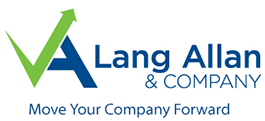Have you given thought to your tax responsibilities, and the choices you need to make about them, as you start a business? To begin with, you have to consider what form of business entity to establish. Some common forms are sole proprietorship, partnership, corporation and S corporation. There’s also the limited liability company, a business structure allowed by state statute. For federal tax purposes, it is considered a corporation or partnership.
Let’s look at some tax considerations in selecting a business structure.
Sole proprietorship. You own an unincorporated business. Your responsibilities may include income tax withholding, Social Security and Medicare taxes, federal unemployment tax and income tax.
Partnership. This is a relationship between two or more people to do trade or business in which each contributes money, property, labor or skill and shares in the profits and losses. A partnership must file an annual information return to report the income, deductions, gains and losses from its operations. Each partner reports their share of the partnership’s income or loss on their personal tax return. The partnership must report its finances on Schedule K-1.
Each individual in a partnership may need to file:
- Form 965-A, Individual Report of Net 965 Tax Liability.
- Schedule E of Form 1040, Supplemental Income and Loss.
- Self-employment, estimated tax and maybe even international tax forms.
Corporation. When you form a corporation, prospective shareholders exchange money, property or both for the corporation’s stock. Your corporation generally will take the same deductions as a sole proprietorship does, but a corporation can take special deductions.
A popular form for smaller companies is the S corporation. It allows no more than 100 shareholders, and not all businesses are eligible. For those that are, the S corporation offers some great advantages. It can pass corporate income, losses, deductions and credits through to its shareholders for federal tax purposes. The shareholders report the flow-through income and losses on their personal tax returns and are assessed tax at their individual income tax rates — thus avoiding double taxation on the corporate income. S corporations themselves, however, are responsible for taxes on certain built-in gains and passive income at the entity level.
The form of your business is an important decision you’ll make as you get started. You may also find yourself making it again later on if a change of form becomes advantageous. This article is just an overview of a complex series of decisions, so be sure to reach out to us from the day you decide to start a business.
